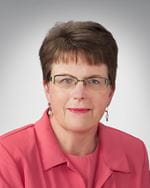Password Reset
Forgot your password? Enter the email address you used to create your account to initiate a password reset.
Forgot your password? Enter the email address you used to create your account to initiate a password reset.
5 Minutes
 Catherine Palmer, PhD, researcher and associate professor at the University of Pittsburgh School of Medicine Department of Otolaryngology and the University’s Department of Communication Science and Disorders, received a Patient-Centered Outcomes Research Institute (PCORI) award for a new study with individuals who have age-related hearing loss.
Catherine Palmer, PhD, researcher and associate professor at the University of Pittsburgh School of Medicine Department of Otolaryngology and the University’s Department of Communication Science and Disorders, received a Patient-Centered Outcomes Research Institute (PCORI) award for a new study with individuals who have age-related hearing loss.
Dr. Palmer also is the director of Audiology at UPMC. A significant portion of her research involves interventional audiology (IA). IA seeks to treat hearing loss when it is not the primary concern of the patient, but the untreated hearing loss negatively affects other aspects of health and quality of life for the individual.
In 2016, Dr. Palmer and colleagues began a pilot project called HearCARE: Hearing for Communication and Resident Engagement. Funded by the Hearst Foundations, the pilot study involved having an audiologist in each of 33 UPMC senior living facilities (independent living, assisted living, and skilled nursing and rehabilitation facilities) once per month. In addition, the program had a communication facilitator in one of the assisted living facilities who was on-site to ensure that the residents and patients can communicate day-to-day. The program involved a number of activities to facilitate hearing, including caring for hearing aids, using assistive devices (phone devices, TV devices), ensuring common rooms are equipped with listening devices, and other interventions.
In 2017, Dr. Palmer’s team published initial findings of their pilot program in the journal Seminars in Hearing, where they outlined the key components of this communication assistance program and innovative model for delivering audiology services to a diverse group of older adults in multiple residential living and care settings.
The findings from the pilot study informed Dr. Palmer’s application for a larger PCORI award to continue the investigation of the interventions. In late 2019, Dr. Palmer received funding from PCORI to advance her research.
Most older adults have age-related hearing loss, and fewer than 20% of these individuals use hearing aids. Increasingly, as older adults require more care and seek more social engagement, many of them are finding senior communities an appropriate living arrangement; however, untreated hearing loss compromises social participation. It is known that social participation is important to healthy aging. Senior living communities provide an excellent place to determine the best way to help aging adults with their hearing challenges, as hearing help can be provided where the patient lives.
The question is: What type of help will be best for a group of people with age-related hearing loss?
A common model of hearing care in senior living facilities is an audiologist visiting the facility once per month. This arrangement provides care to those people who sign up for an appointment. Another model of care includes the audiologist but adds trained personnel who can provide ongoing hearing support throughout the month. Such personnel can help with hearing aids, batteries, phone amplifiers, and TV devices, or can even provide simple, inexpensive amplifiers for individuals to use. Personnel also can ensure everyone can hear during group activities or a group movie.
Dr. Palmer’s PCORI study will compare these two models of care in eight UPMC assisted living facilities with 520 total residents. The goal is to determine if people are more satisfied with their social participation when more hearing support is available throughout the month.
Additional goals of the study include understanding if people with hearing loss find that their quality of life improves when they have access to hearing help more frequently. Additionally, Dr. Palmer’s study will determine if the staff in these facilities and the families of residents will benefit from more hearing help. All of the facilities will be visited once per month by an audiologist. Over a three-year period, the study will add extra support to two facilities at a time until all eight have additional support.
During this time, Dr. Palmer’s research team will ask residents to answer questionnaires about their satisfaction with their social participation and their hearing. These data will help to compare the different types of treatment. The results of the study will help the researchers make recommendations about which type of hearing care might be most helpful in senior living communities.
Dr. Palmer is an associate professor in both the Department of Communication Science and Disorders and the Department of Otolaryngology. She serves as the director of Audiology for the UPMC Health System. Dr. Palmer conducts research in the areas of auditory learning post-hearing aid fitting, the relationship between hearing and cognitive health, and matching technology to individual needs. She has published more than 100 articles and book chapters on these topic areas, as well as provided more than 200 national and international presentations.
Dr. Palmer is the director of the AuD program at the University of Pittsburgh and teaches the graduate level amplification courses. She serves as editor-in-chief of the journal Seminars in Hearing and is currently president of the American Academy of Audiology. Dr. Palmer has been awarded the Editor’s Award for the American Journal of Audiology, the Dean’s Distinguished Teaching Award SHRS, the University of Pittsburgh Provost’s Award for Excellence in Mentoring, and the Pennsylvania Academy of Audiology Award for Outstanding Service.
Learn more about the UPMC Department of Otolaryngology.